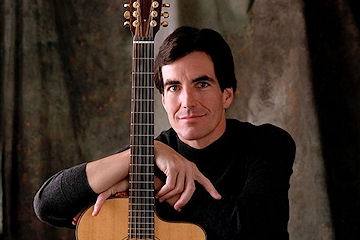Critics call his guitar playing “breathtaking,” “haunting,” and “rich.” Guitar magazines describe his compositions as “spectacular,” “elegant,” and “exquisite,” and praise his twelve-string work as “revelatory.” Media reviewers trace the roots of his style to folk, jazz, pop, and classical music, categorize his playing as “Baroque Folk,” “New World Steel String,” a “Solo Guitar Orchestra,” “Instrumental Americana,” and compare him to Leo Kottke and Michael Hedges.
Another reviewer ventured this analysis: “What to call his unique melange of styles? There’s an aspect of Americana in the echoes of Appalachian and old-timey styles that are apparent in just about every track, but there are also elements of jazz, Celtic folk, and a dash of blues in here somewhere. What Proctor does is create guitar music that reflects the whole heritage of the instrument and still has his own distinct stamp — a tall order, but he’s up to the job”
These luminous and diverse quotes characterize the media’s efforts to describe Chris Proctor’s solo, 6 and 12-string guitar concerts and recordings. Two additional comments typify the first-time listener’s reaction: “Wow- I didn’t know that acoustic guitars could sound like that,” and, ” It seems as if there are three guitarists up there on stage, not just one.”

